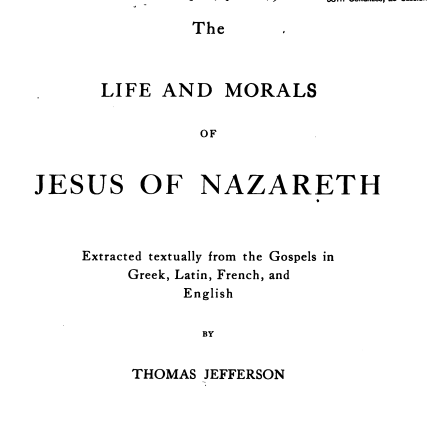Tomorrow Americans will celebrate Thomas Jefferson’s most well-known document, the United States Declaration of Independence. Most of those celebrating will have no idea that Thomas Jefferson was one of the first great American freethinkers, a man who was not remotely beholden to the doctrines of his forefathers. But you, dear reader, will know better.
Somewhat scandalously to those who believe America was founded on fundamentalist Christian principles, it turns out that the principal drafter of the Declaration of Independence had no problem whatsoever with doing textual criticism on the Bible, and indeed, paring it down to the parts which he thought most probably historical and morally worthwhile.
We must reduce our volume to the simple Evangelists, select, even from them, the very words only of Jesus, paring off the amphiboligisms into which they have been led, by forgetting often, or not understanding, what had fallen from him, by giving their own misconceptions as his dicta, and expressing unintelligibly for others what they had not understood themselves. There will be found remaining the most sublime and benevolent code of morals which has ever been offered to man. I have performed this operation for my own use, by cutting verse by verse out of the printed book, and arranging the matter which is evidently his and which is as easily distinguished as diamonds in a dung-hill. The result is an octavo of forty-six pages.
— Thomas Jefferson to John Adams, private letter, October 12, 1813
(I believe amphiboligism in this context means something like textual ambiguity.)
Forty-six pages of purportedly authentic Jesuine wisdom, carefully strained through a Jeffersonian filter. And it is yours for the taking, available for free at Google Books or (in a vastly more readable English-only version) from here.

